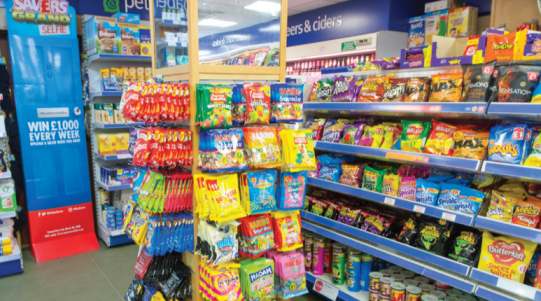Convenience retailers have a “new role” in providing larger supermarket-style shops for customers postpandemic, according to Unitas Wholesale sales and marketing director John Kinney.
The senior boss of the group, which represents wholesalers including Blakemore, Parfetts and Filshill, told Better Retailing average sales in its Today’s symbol group were up by 50%.
Retailers have seen footfall increase during the pandemic as new customers have discovered their stores as an alternative to supermarkets.
Convenience stores benefit from shop reopenings
Kinney urged retailers to conduct thorough range and category reviews to meet this new shopper mission.
He advised a move away from food to go, despite the category previously being heralded as a key opportunity and format development in convenience retailing.
“Daily work patterns will have changed, and many stores in officebased locations will find themselves losing footfall, while stores in areas such as housing estates have to identify their new role,” Kinney said.
NFRN asks prime minister to scrap Sunday trading plans
“More people are now staying at home and the trend used to be food to go, but that’s now reversed. We’re seeing top-up and impulse shopping growing in the convenience channel. Customers are buying six-packs of crisps, larger bars of chocolate and other sharing bags.
“We’re seeing a shift, and we want the customer who’s never been to that shop before to feel valued.”
Due to lockdown restrictions, Unitas was unable to send its full retail development team.
Since these limits have been eased, Kinney added the group has begun redeploying its team to help retailers cater to those new trends.
Counter screens to outlast Covid-19
“We had initially geared up the field team to support retailers in ensuring social distancing measures. The group is now gearing up to help retailers look at what space they need and how they can keep the majority of extra trade they’ve gained,” he said.
“We’ll help identify what their local catchment is. It’s not just a short-term opportunity.
“The key is to also identify what products have seen a significant decline in the rate of sale. We’ll notify retailers about this using our own system and tell them to go look at what they’re sitting on.
Coronavirus: How safe is it to shop in store?
“This is especially important for products that aren’t long-life.”
Another way the group has helped its retailers attract and keep new customers is by maintaining its promotional cycle. “We were asked by some why we were keeping promotions.
There’s been feedback from customers about their intention to keep shopping locally, but to continue doing that is a different thing.
“We want to make sure they know we’re continually giving good value and not give the impression we’re profiteering, he added.”
Find out more on our coronavirus information hub for retailers



Comments
This article doesn't have any comments yet, be the first!